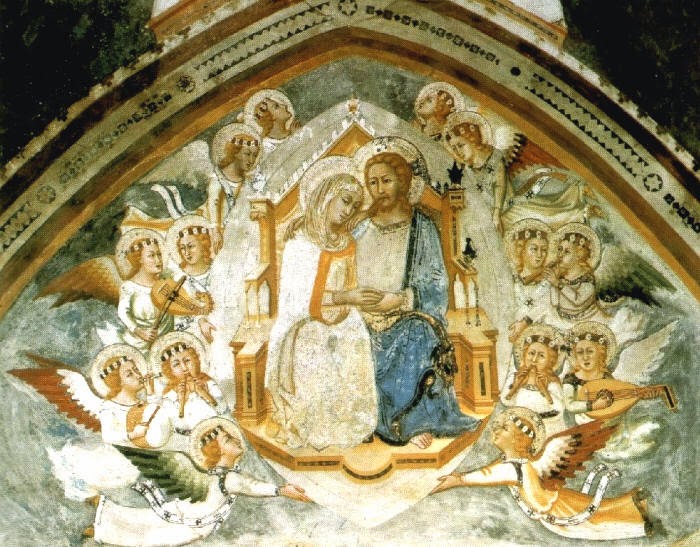
Jesus is so good that he takes damaged goods and makes them whole. In case you are wondering what is “damaged goods,” here’s a definition. According to Oxford Living Dictionaries, damaged goods means: “A person who is regarded as inadequate or impaired in some way.” The dictionary offers this example: “See? I’m damaged goods. You don’t want me”. It can refer to someone who has been damaged emotionally, relationally, politically, and in various other ways. When referring to someone as “damaged goods,” it is often implied or suggested that you want to stay clear of them—they’re no good, or at least not good enough for you.
I am so very thankful that Jesus does not look at me as damaged goods from which he should stay clear. Yes, I’ve been damaged. Yes, I’m damaged goods due to my broken condition bound up with humanity’s fall. For what it’s worth, we all are damaged goods, according to Scripture. As Romans 3:23 indicates, “for all have sinned and fall short of the glory of God” (ESV). We are damaged, broken, smashed, all the result of our historic fall and never-ending spills as humans. As a result, we fall short of God’s glory. We don’t measure up.
But that’s not all that Scripture teaches. God’s measureless grace signifies that while we do not measure up, God keeps pouring out divine, unconditional love. It is a measureless overflow of divine goodness not dependent on our damaged state of being, but upon God’s wholeness. “For the wages of sin is death, but the free gift of God is eternal life in Christ Jesus our Lord” (Romans 6:23; ESV). God is so complete, pure and good that God can and does take damaged goods and makes them whole.
The language of damaged goods is often applied in the context of dating and marriage. Someone who has experienced broken relationships may appear to others as damaged goods to avoid. Thankfully, Jesus does not view matters that way. While we are all damaged goods based on our fallen, broken condition in relation to God and one another, God draws us into relationship once again through Jesus Christ by sheer trust in God’s word. Here is how Martin Luther put the matter, as he discusses how Jesus takes us as damaged goods who are guilty of spiritual harlotry and faithlessness and makes us whole in spiritual union with himself, which is a “royal marriage”:
Who then can fully appreciate what this royal marriage means? Who can understand the riches of the glory of this grace? Here this rich and divine bridegroom Christ marries this poor, wicked harlot, redeems her from all her evil, and adorns her with all his goodness. Her sins cannot now destroy her, since they are laid upon Christ and swallowed up by him. And she has that righteousness in Christ, her husband, of which she may boast as of her own and which she can confidently display alongside her sins in the face of death and hell and say, “If I have sinned, yet my Christ, in whom I believe, has not sinned, and all his is mine and all mine is his,” as the bride in the Song of Solomon (2:16) says, “My beloved is mine and I am his.” [Martin Luther, “The Freedom of a Christian,” in Martin Luther’s Basic Theological Writings, ed. Timothy F. Lull (Minneapolis: Fortress Press, 1989), page 604.]
Luther is talking about Jesus’ relationship with all those who believe in him, who trust him for their lives and salvation. Such marital union is not merely intellectual or judicial. It is a real union of hearts through faith, as God’s Word makes our hearts glow with God’s declaration of fiery love. Luther puts it this way: “No good work can rely upon the Word of God or live in the soul, for faith alone and the Word of God rule in the soul. Just as the heated iron glows like fire because of the union of fire with it, so the Word imparts its qualities to the soul” (The Freedom of a Christian, page 601). It is through “the wedding ring of faith” that Jesus marries those who believe in him. It is a marriage union of spirits, not of flesh. Jesus marries the beloved “in faith, steadfast love, and in mercies, righteousness, and justice, as Hos. 2[:19-20] says” (The Freedom of a Christian, page 604).
The biblical story is a love story filled with declarations of God’s faithful love for a faithless people, who continue to go astray, but whom God continues to pursue. Though damaged goods, God keeps seeking after us to draw us to God’s self and make us whole through union with Jesus in the Spirit. In light of God’s complete and perfect love, may we never play the field again. May we who believe in him always cherish the gift that is Jesus. May we never return Jesus to a spiritual vendor for a refund, whereby we become damaged goods once again.












